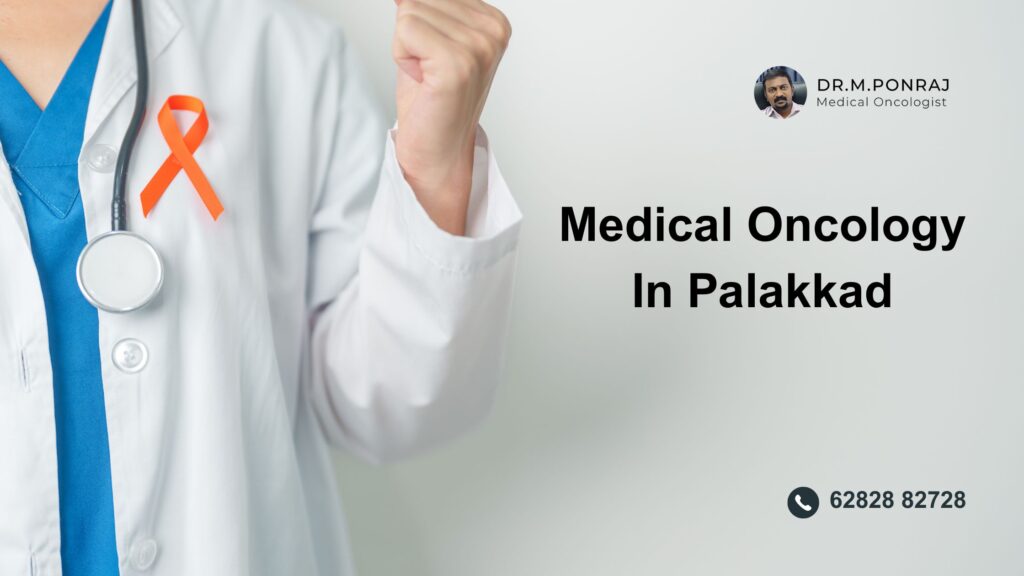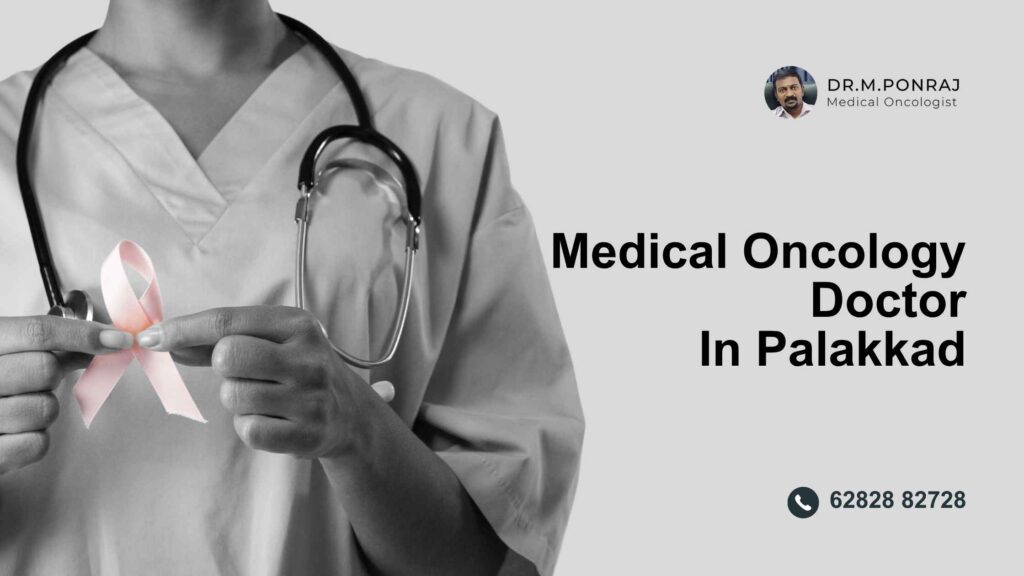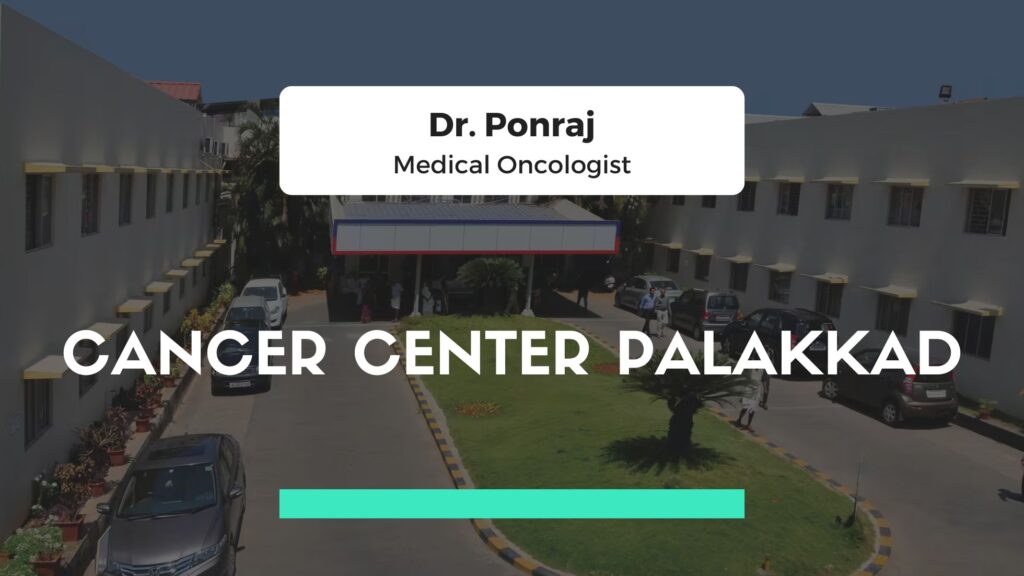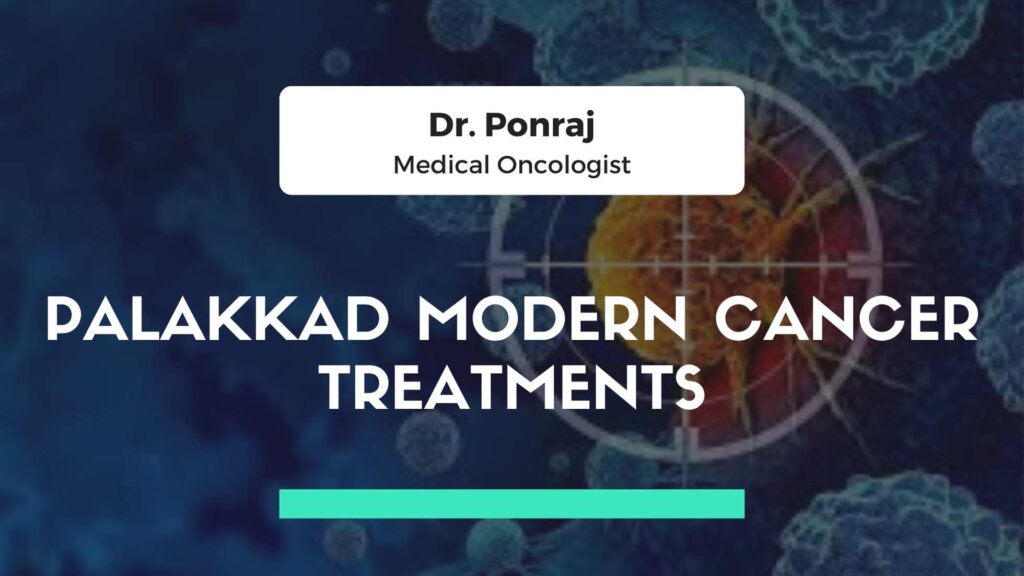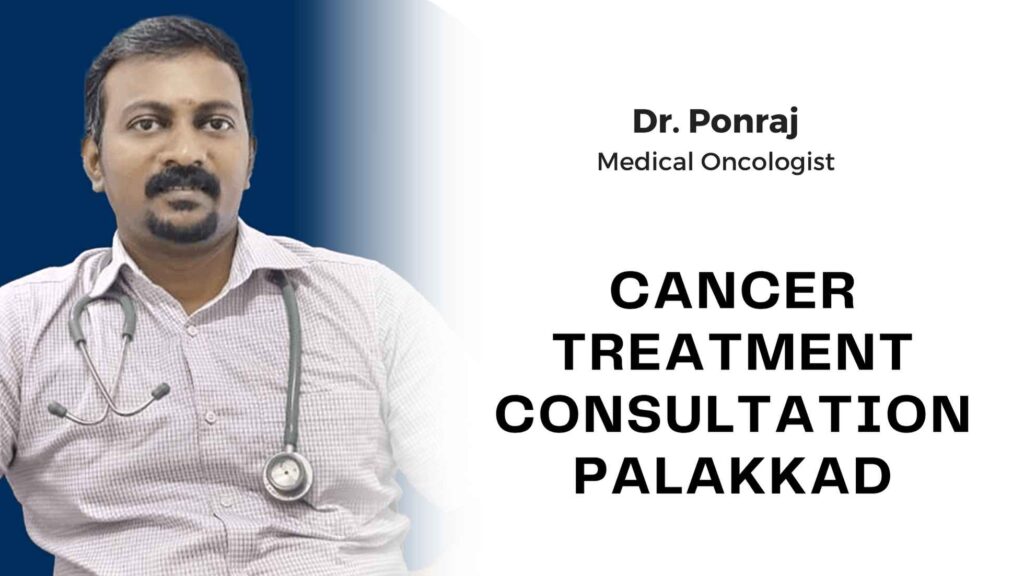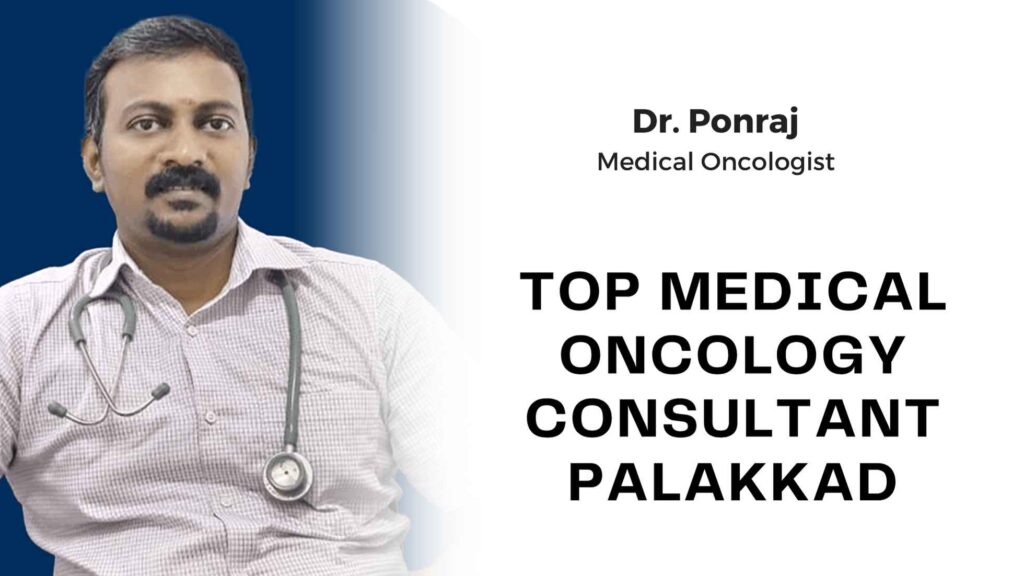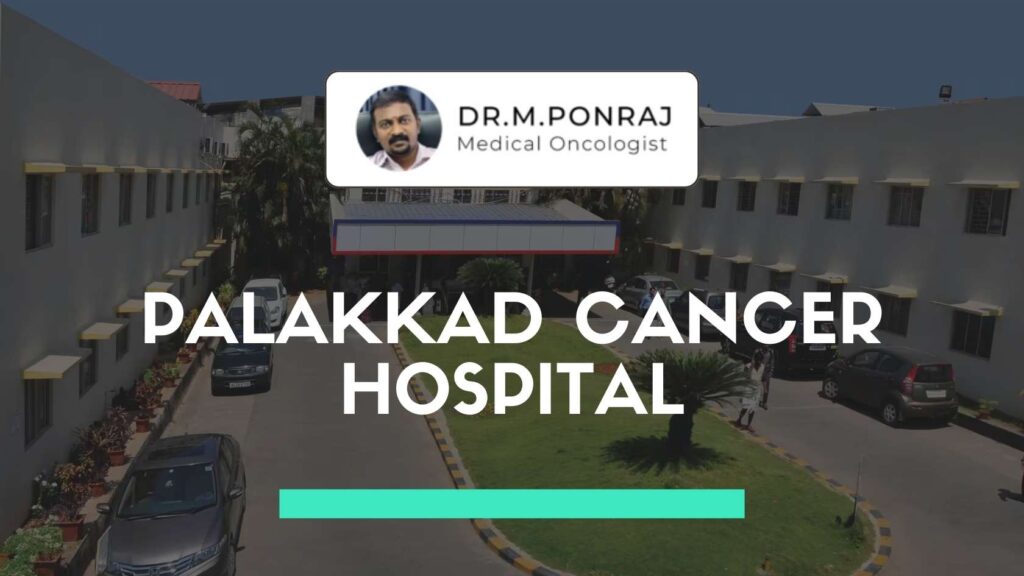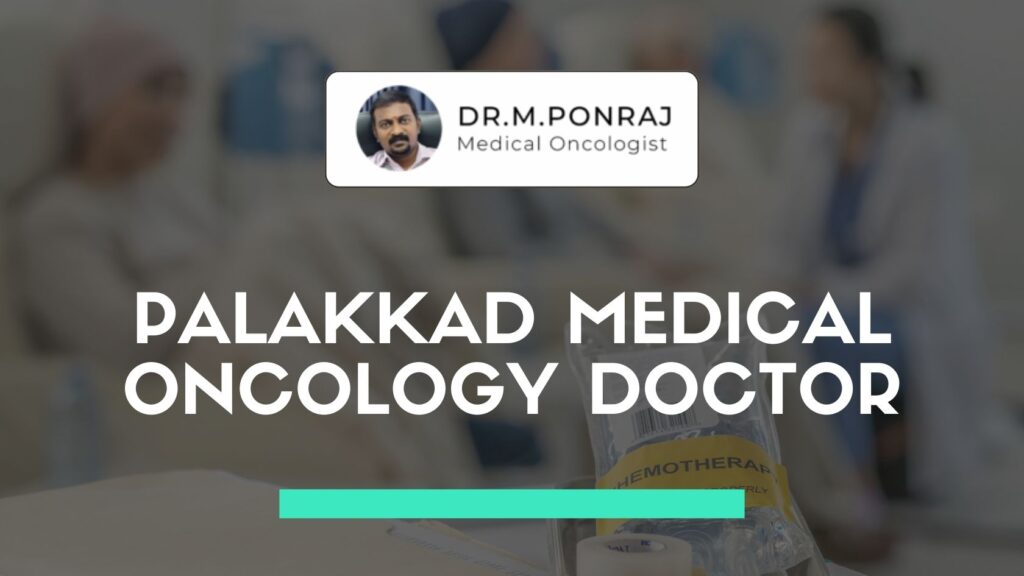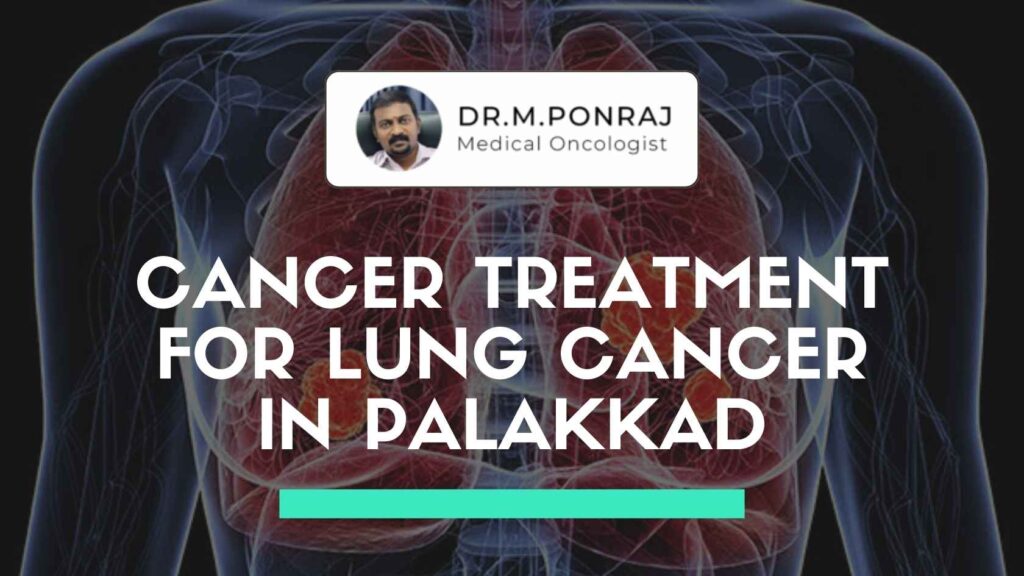Doctor for Cancer Near Palakkad: Expert Care You Can Trust
When searching for a doctor for cancer near Palakkad, patients and families are often overwhelmed by the emotional and medical complexities of a cancer diagnosis. It’s not just about finding a specialist — it’s about finding the right specialist who understands your journey, provides world-class care, and walks with you every step of the way. As a seasoned doctor for cancer near Palakkad, I, Dr. M. Ponraj, bring over 16 years of experience in medical oncology, combining science, compassion, and advanced treatments to deliver personalized care tailored to each patient’s needs. In this comprehensive post, you’ll discover what makes cancer care in Palakkad unique, the benefits and challenges of local treatment, and why choosing the right oncologist is vital. The Rising Need for a Trusted Doctor for Cancer Near Palakkad Over the past decade, the landscape of healthcare in Kerala has changed dramatically, especially in the field of oncology. Cancer — once considered a rare and distant disease — is now a growing concern among families in both urban and rural areas of the state. Among the districts witnessing a steady increase in cancer incidence is Palakkad, a region known for its serene surroundings but now facing the harsh realities of a modern health crisis. Recent studies and health reports indicate that cancer rates in Palakkad are rising due to several compounding factors. These include: Environmental pollutants from increased urbanization and industrialization Changes in dietary habits, with a rise in processed food and reduced physical activity Increased tobacco and alcohol consumption, especially among younger adults Genetic predispositions and family histories Late diagnosis due to lack of awareness or fear of stigma Amid these growing challenges, the need for a doctor for cancer near Palakkad has become more urgent than ever. People are no longer just seeking treatment — they are looking for a trustworthy medical partner who can guide them through the physical, emotional, and psychological toll of cancer. Why Do Patients Leave Palakkad for Cancer Care? Historically, many cancer patients in Palakkad and surrounding regions chose to travel to larger metropolitan cities such as Kochi, Thrissur, or even Chennai. The reasons varied: A perception that big-city hospitals offer more advanced treatments Availability of multispecialty institutions with well-known names Recommendations from family and friends who had prior treatments elsewhere A belief that local doctors may lack exposure to newer technologies or protocols However, this trend, though rooted in genuine concerns, has its downsides. Long-distance travel for frequent chemotherapy sessions or follow-ups can be exhausting, especially for older patients or those with advanced disease. It disrupts family life, causes financial strain due to transportation and lodging costs, and often leads to treatment discontinuation. A Positive Shift: Quality Cancer Care in Palakkad Thankfully, the situation is evolving. As a committed doctor for cancer near Palakkad, I’ve witnessed a growing trust in local oncology services. With improved infrastructure, access to modern diagnostic labs, and availability of advanced treatments like targeted therapy, immunotherapy, and supportive care, patients no longer need to travel far for excellence in cancer care. By choosing a doctor for cancer near Palakkad, patients benefit from: Continuity of care — Regular follow-ups without the stress of travel Personalized attention — Unlike crowded city hospitals, local specialists often provide more time per patient Family involvement — Loved ones can be actively engaged in treatment and recovery Lower stress levels — Familiar surroundings and cultural comfort aid healing Faster intervention — Early consultation leads to earlier diagnosis and better prognosis Building Trust Within the Community Being a medical oncologist in Palakkad, I take immense pride in seeing more patients now choosing local care and getting remarkable outcomes. Trust doesn’t build overnight — it’s earned through transparent conversations, consistent outcomes, and a deep sense of empathy. I’ve made it my mission to be not just a doctor but a guide and advocate for cancer patients in the region. Today, many patients who once felt they had to leave Palakkad for better treatment now share success stories that inspire others to seek local help sooner. This cultural shift is not just a professional milestone for me but a community-wide movement toward accessible, high-quality cancer care. Why Patients Delay Seeking a Cancer Doctor Near Palakkad There are several reasons why patients may delay or avoid seeking a doctor for cancer near Palakkad: Lack of Awareness: Many people ignore early warning signs of cancer due to limited knowledge. Social Stigma: In smaller towns, a cancer diagnosis is still shrouded in fear and stigma. Misconceptions about Local Care: Some believe advanced treatment is only available in metro hospitals. Financial Anxiety: Despite affordability in Palakkad, fear of costs may stop patients from consulting an oncologist. These barriers often lead to late-stage diagnoses, which reduce survival rates. It’s time to break this cycle by spreading awareness and offering accessible, advanced care in Palakkad itself. What Sets a Good Cancer Doctor Apart? Finding a doctor for cancer near Palakkad isn’t just about credentials — it’s about commitment, compassion, and communication. Key Qualities to Look For: Expertise in Modern Oncology: Experience with chemotherapy, immunotherapy, and targeted treatments. Personalized Care Approach: Every patient is different; treatment must reflect that. Open Communication: Patients deserve clarity, not confusion. Follow-up and Emotional Support: Cancer care doesn’t end with treatment — recovery and mental wellness matter too. I strive to embody all these qualities, ensuring each patient receives care that is both effective and empathetic. Personalized Cancer Treatment in Palakkad: Why It Matters Every cancer diagnosis is unique — and so should the treatment be. As a doctor for cancer near Palakkad, I emphasize personalized treatment plans based on tumor type, genetic makeup, patient age, health condition, and preferences. My Approach Includes: Comprehensive Diagnosis Molecular Testing (where needed) Customized Drug Regimens Supportive Therapies (nutrition, pain management, counseling) This approach improves outcomes and enhances the quality of life for patients — even in the most challenging cases. Cancer Types Commonly Treated in Palakkad As a dedicated and experienced doctor for cancer near Palakkad, I have had the
Doctor for Cancer Near Palakkad: Expert Care You Can Trust Read More »


